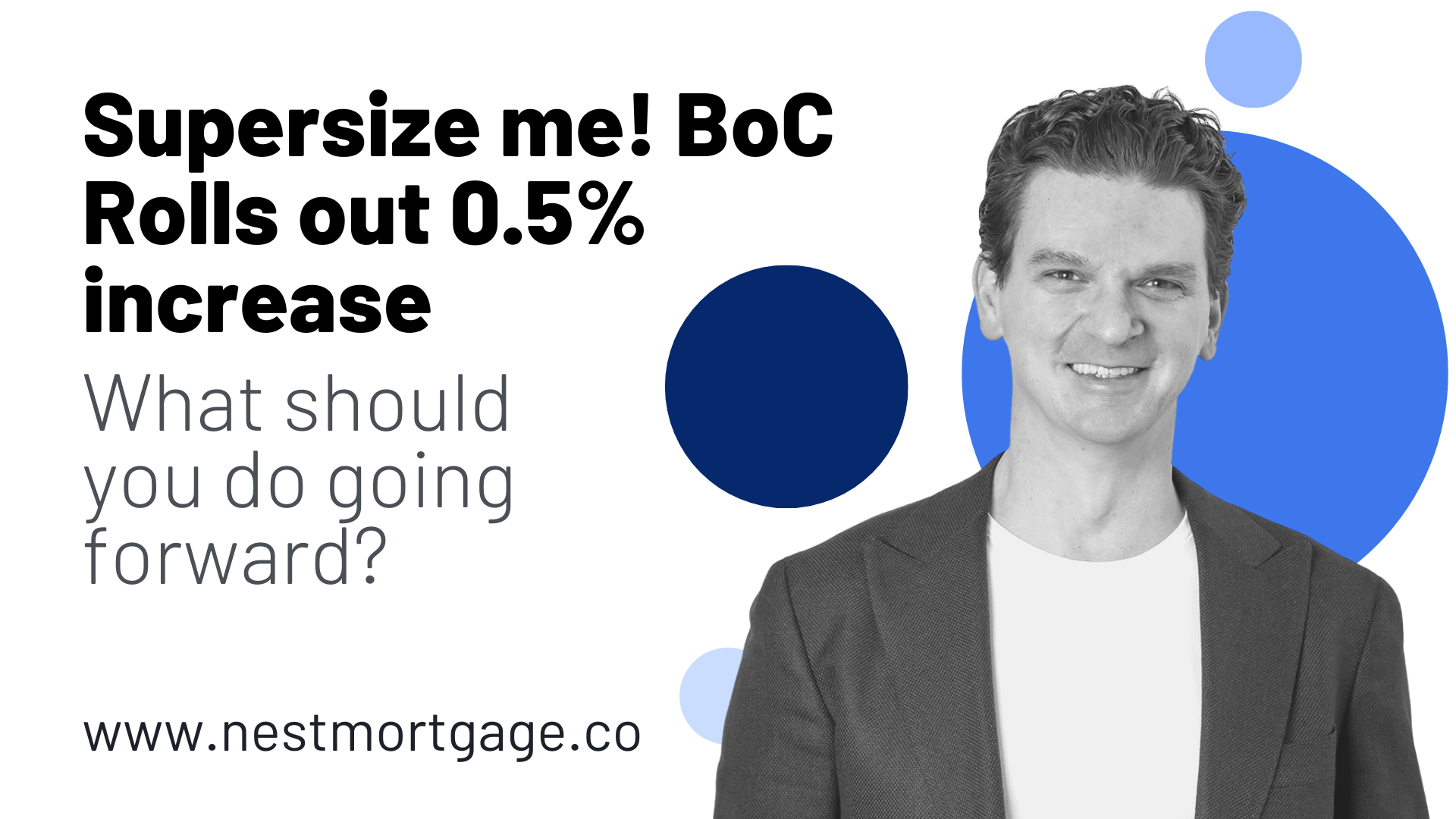Large-Double-Double
And so it is done. Tiff Macklem and the Bank of Canada (BoC) announced a 0.5% increase to the overnight rate, doubling their usual 0.25% hike. The move is required to reign in inflation expectations that have been plastered across all media outlets. And with unemployment at it's lowest level ever and supply unable to keep up with demand, the Canadian economy is no longer in need of ultra-low, stimulative rate policy. There will be more rate increases required as we move forward - the pace and timing of which will be determined by how the economy evolves.
There is so much happening that is influencing economic outcomes right now. The pandemic recovery. The horrific war in the Ukraine. Shocks to oil and commodity prices and continued disruptions to supply chains. The good news is that the Canadian economy is faring quite well and long term inflation expectations are still in-line with the BoC's target range. It will however take us some time to get there.
Much of this rate increase is to keep those expectations anchored. Having people believe their dollars won't be able to buy as much going forward is not something a Central Bank can have. It's kind of their job to maintain the purchasing power of your dollars over time. And with the growing chorus of pundits screaming at us all that the sky is falling and it's inflation's fault, there is little choice left but to raise rates.
All of that said, the BoC's tune has largely remained the same for quite some time: they expect higher inflation in the short term but that it will ease back to normal over time through a combination of factors:
- Calculated and measured interest rate increases
- Repair of broken supply chains allowing increase of goods to meet demand
- Eventual easing of energy and food costs that account for ~2.5% of the 5.7% CPI (inflation measure)
- Normalization of trade as pandemic restrictions ease
The war in the Ukraine still presents a fair amount of uncertainty across the board. Humanitarian issues aside - the economic impact of higher oil and commodity prices and supply chain issues still present a huge unknown.
If You Have a Variable Rate Mortgage
Yada yada yada - economics. But what do I do, Ray? If you've skipped the dry bits directly to here, I don't blame you. What you want to know is how this affects you and how to respond. If you're in a variable rate mortgage, your rate just went up. And for many of you, that means your monthly payment is going with it. But for others in a capped payment product, you're now paying more interest. So let's cover off the two, main questions variable-mortgage holders have:
Should I Convert to a Fixed Rate?
Fixed mortgage rates are currently sitting between 3.84% and 4.14%. After this rate increase, many variable rate mortgage holders will be between 2.10% and 2.40%. That is still quite a significant gap and leaves plenty of room for further rate increases. The end point of this rate hike cycle is likely to be 1.25% higher than we are today. And that increase will be moved toward over time leaving us below where fixed rates are currently at. So if you have the stomach for it, I would suggest staying the variable course with a couple of reminders:
A variable rate does provide more flexibility which can be very important in times of uncertainty
The probability of cost savings over converting to fixed is still high
What Should I Do With My Payment?
Much of the advice I have given lately is that with higher rates to come, it's a good idea to take a lower, variable rate and make higher, fixed rate payments. As we enter the tightening cycle, let's make that message a little stronger: you should look to increase your mortgage payment. Many of you will be in a capped-payment product that allows you to set a higher payment. By getting ahead of further rate increases, you will be pre-paying your mortgage while maintaining your amortization. And any further rate increases will only eat into your pre-payment which is a nice place to be. I'm happy to help assess your situation and give you some guidance on where to set payments that you're comfortable with. Please feel free to reach out if you have questions on how to do this.
Converting to a fixed rate is always an option as well. And certainly, if you feel that's your best move with all things considered, I'm happy to help guide you through that as well.
What's Next?
I dunno. Probably an alien invasion. Maybe a zombie apocalypse. The reality is that no one really knows what will happen next. And isn't that ultimately the point? We didn't predict a pandemic or the war. Yet all of the prognostications of today assume what is currently happening will carry on going forward without interruption. And though it's hard to predict the unexpected - we should probably start expecting the unexpected. We do know that rates will start to edge higher. And that many of the issues that are causing stress and strain will take some time resolve. But they will resolve. And we're here to help in the meantime.
As always, please feel free to forward this on to anyone who might find it useful. And never hesitate to reach out if you have questions and need some guidance.

